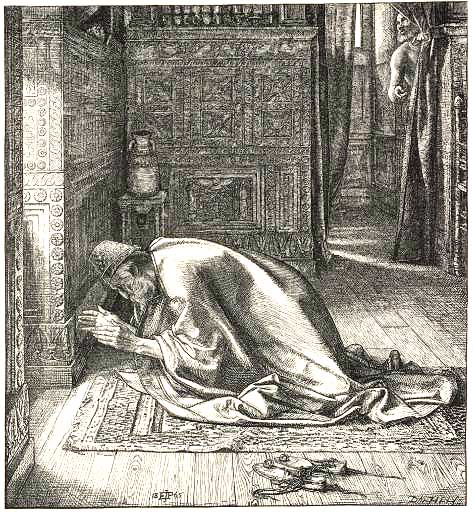
We all pay tribute and follow some individual, group, ideal, or law. It could be a ruler or a boss, a parent, teacher, a religious leader, or a celebrity. It could be a nation or political party. It could even be that we follow ourselves, obeying our narcissistic thirst and being a law to ourselves to a fault.
I was reminded of the point on allegiances yesterday as I reflected on the Joint Chiefs of Staff Chairman Mark Milley’s remarks at the opening of the new National Museum of the United States Army on Veterans Day this week. General Milley’s statements took on even greater significance against the backdrop of great political turmoil in our country. In his speech he said,
“We are unique among armies, we are unique among militaries. We do not take an oath to a king or queen, or tyrant or dictator, we do not take an oath to an individual. No, we do not take an oath to a country, a tribe or a religion.”
General Milley went on to say,
“We take an oath to the Constitution, and every soldier that is represented in this museum—every sailor, airman, marine, coastguard—each of us protects and defends that document, regardless of personal price.” (You can find the video of General Milley’s remarks here).
Regardless of our political party differences as a populace, and regardless of our views of warfare, I would hope we who are Americans would all esteem General Milley’s principled stance. For his part, he and his fellow soldiers follow the democratic ideals laid out in the Constitution to a fault. In fact, he went so far as to say the US military as a whole is unique among militaries in this regard.
I recalled the general’s words today as I read the account of Daniel and the lions’ den in Daniel 6 during my morning devotions. The various high officials of the empire ruled by Darius the Mede were jealous of the superior standing Daniel was gaining in the kingdom and wanted to destroy him. But the only fault they could find with him was that he followed God’s Law given to Moses and the prophets before him to a fault:
“Then the high officials and the satraps sought to find a ground for complaint against Daniel with regard to the kingdom, but they could find no ground for complaint or any fault, because he was faithful, and no error or fault was found in him. Then these men said, ‘We shall not find any ground for complaint against this Daniel unless we find it in connection with the law of his God’” (Daniel 6:4-5; ESV).
What follows is well known. They tricked the king into making a law that everyone in his kingdom must bow the knee and make a petition and prayer to no God or person for thirty days other than King Darius. If they did not obey the king’s decree, they would be thrown into the lions’ den to be devoured. The king signed the law, which could not be revoked.
These royal officials knew that they now had Daniel trapped. He would not budge from adhering to his principled stance. They would be able to find fault with him for following God’s Law to a fault:
“When Daniel knew that the document had been signed, he went to his house where he had windows in his upper chamber open toward Jerusalem. He got down on his knees three times a day and prayed and gave thanks before his God, as he had done previously” (Daniel 6:10; ESV).
The officials informed King Darius that Daniel disobeyed the king’s order. The king was himself trapped, since he could not revoke the decree he had signed, according to the law of the land. So he was forced to consent to have Daniel thrown into the lions’ den. The story has a happy ending for Daniel in that God delivered him from the lions. Regardless, though, Daniel had demonstrated that he would not budge from adhering to God’s Law regardless of personal cost or price.
It is refreshing when you find that the only fault someone has is to follow a lofty ideal to a fault and “regardless of personal price,” to quote again from General Milley’s speech. Daniel followed God’s Law, not ultimately King Darius, not his own Jewish nation’s religion, which had been corrupted and which led to exile for Daniel and his people, nor Daniel’s own law of self-preservation.
Who or what do we who claim to follow Christ Jesus adhere to even to a fault? Are we unique among the general populace that above all else we adhere to Jesus’ word and law of his kingdom disclosed in the Gospels in the New Testament? Or do we adhere to following a king or queen, a political or religious leader, celebrity, or even ourselves? What do people around us find fault with us for? May it be that we follow Jesus and his law—and no other law or leader—to a fault “regardless of personal price.”












